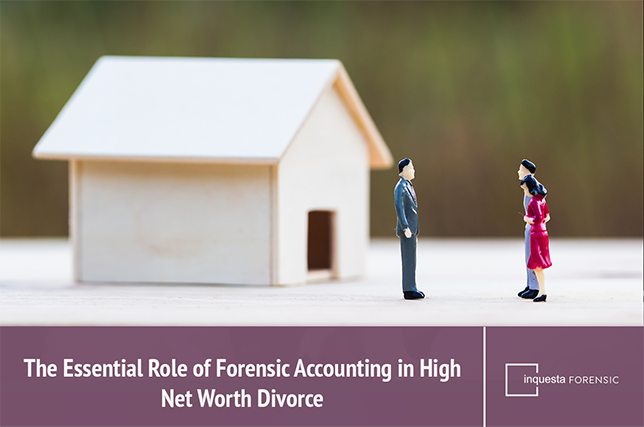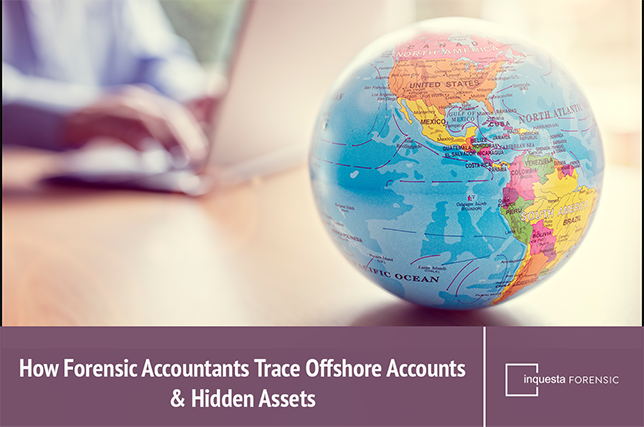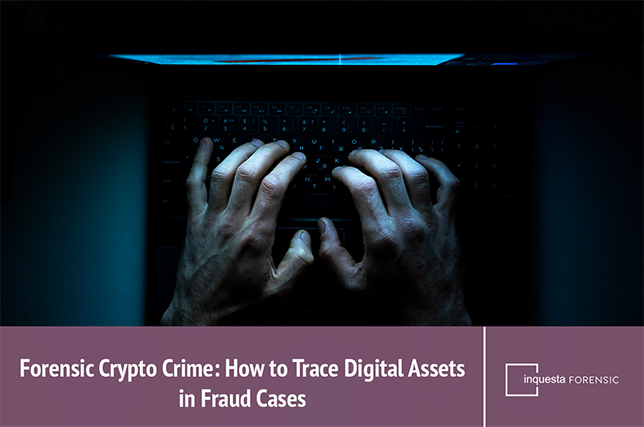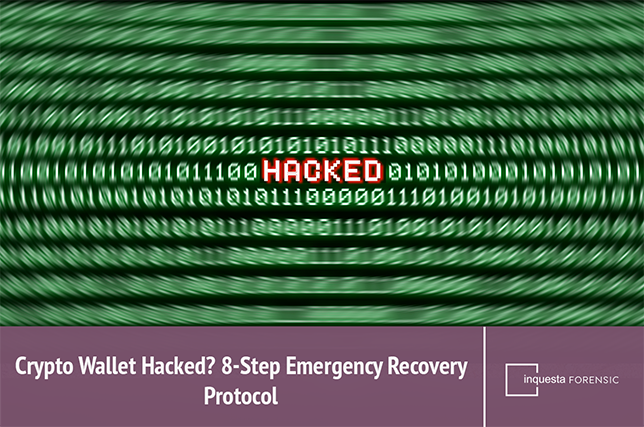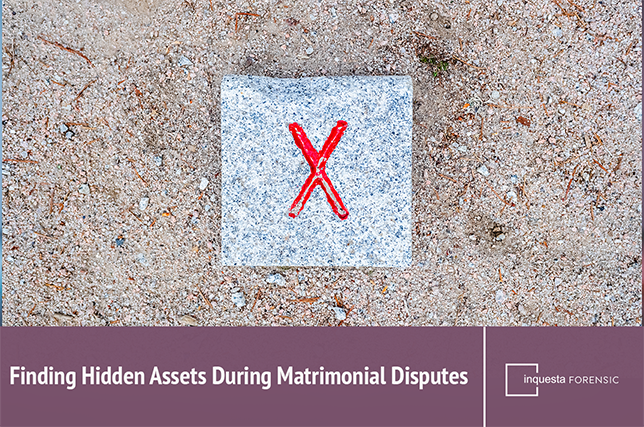Divorce has always been an incredibly complex process, especially when it comes to the fair division of assets. However, with the recent boom of digital currencies, such as Bitcoin, Ethereum, and Non-Fungible Tokens (NFTs) as mainstream assets, crypto in divorce has become a significant talking point in many separations.
Given their decentralised nature, price volatility, and potential for anonymity, digital currencies present unique and complex challenges when dividing assets. These same features have also contributed to a rise in cryptocurrency fraud, making expert guidance essential wherever digital currency is involved.
In this article, we will explore crypto in divorce, including valuation, disclosure, and division, as well as the unique challenges posed by NFT divorce cases. Additionally, we will discuss how a forensic accountant can help uncover hidden digital assets and ensure total transparency in financial disputes.
Cryptocurrency in Divorce Explained
Legally, cryptocurrency in divorce is classified as a person’s property, meaning it can be subject to asset division. However, it is decentralised, and often anonymous in nature, making it difficult to track and evaluate. Unlike more traditional forms of investment, cryptocurrencies like Bitcoin and Ethereum are unpredictable, with prices shifting drastically in short timeframes, complicating valuation during divorce settlements.
In most cases, digital assets purchased during the marriage will be subject to fair division, while those that were owned prior may remain separate — unless they have been co-mingled. However, there are some key challenges when it comes to cryptocurrency and divorce, including:
- Encryption and Privacy Tools: Some people will utilise advanced techniques such as advanced encryption to expertly hide their transactions.
- Awareness: Many people have little awareness when it comes to how cryptocurrency can be used to hide assets during divorce. This uncertainty can make it difficult to notice possible warning signs.
- Jurisdiction Issues: The global reach of cryptocurrencies can cause significant jurisdictional hurdles that must be dealt with. This is particularly true when assets are suspected of being held in countries with lax financial regulations, such as the Cayman Islands or the Seychelles.
NFT Divorce: A Unique Challenge
NFTs have emerged as a valuable digital asset class in their own right in recent years. Unlike cryptocurrencies, which are fungible and interchangeable, NFTs are unique and quite often tied into digital art, collectibles, or virtual real estate — adding an additional layer of complexity to divorce proceedings.
Key challenges in NFT divorce cases include:
- Valuation: The true value of an NFT can be highly speculative, while also fluctuating significantly. It will all depend on market trends, demand, and rarity. This means that determining a value at the time of divorce can be tricky.
- Ownership: NFTs are stored in a person’s digital wallet and are sometimes linked to pseudonym blockchain addresses. This makes them incredibly difficult to track. Spouses may even attempt to hide ownership by utilising a decentralised exchange or attempting to transfer NFTs to a private wallet.
- Jurisdiction: Since NFTs operate on decentralised platforms and are often bought and sold on a global scale, the process of tracing them across different jurisdictions can be complex. This is especially true whenever offshore accounts or anonymous wallets are involved.
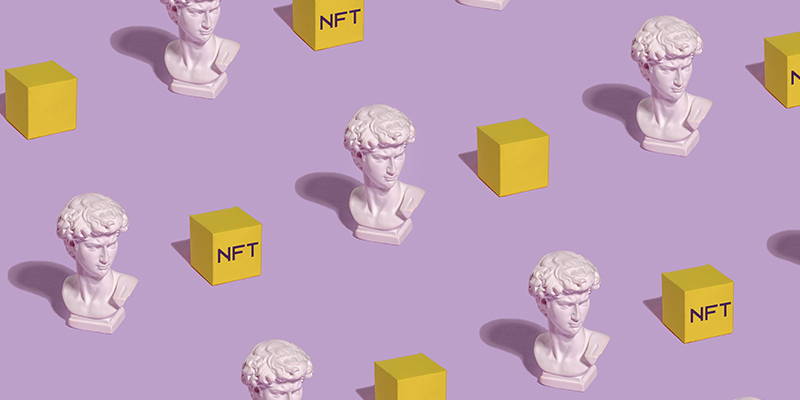
Hidden Cryptocurrency and Divorce
One of the most pressing concerns when it comes to crypto in divorce cases concerns the ease in which assets can be concealed, and the difficulty that often arises from detecting these undisclosed assets. This makes it fairly common for individuals to attempt to hide their digital assets in order to avoid sharing them in the settlement.
Methods that can be utilised to attempt to trace hidden crypto in divorce proceedings include:
- Statements: Bank statements can be reviewed to locate any transactions made linked to crypto exchanges.
- Returns: Tax returns may be studied to identify any reported cryptocurrency related gains or losses.
- Browser History: A user’s browser history can be analysed to search for any cryptocurrency-related activity.
- Transactions: Blockchain transactions may be investigated — with the help of forensic accountants.
Courts tend to take a firm stance when it comes to a failure to disclose assets. As a result, if there is suspicion of hidden cryptocurrency in divorce, the court could issue freezing orders to ensure funds cannot be moved, or require a full financial disclosure statement.
The Role of Forensic Accountants In Cryptocurrency Divorce Issues
Given the complexities of tracing and valuing digital assets — and the rise of cryptocurrency fraud in recent years — working with a forensic accountant is highly recommended. Their expertise ensures accurate valuations, uncovers hidden assets, and provides transparency in financial disputes.
Forensic accountants play a critical role in addressing the unique challenges of crypto in divorce, from tracing hidden assets to providing accurate valuations and ensuring compliance with legal standards:
Tracing Crypto Transactions
Forensic accountants can utilise advanced tools and techniques to attempt to trace crypto transactions across different blockchain networks. They will analyse wallet addresses, histories of transactions, and exchange records, among other things, to identify any potential patterns that could reveal hidden assets or suspicious transfers.

Identifying Hidden Wallets
Even when one party claims to have never owned any digital assets, it’s still possible for hidden wallets to be uncovered. Forensic accountants can do so by examining email communications and financial records looking for any evidence of crypto-related activities.
Valuing Cryptocurrencies
As highlighted earlier, the crypto markets are highly volatile. This makes valuing the digital assets at the time of the separation incredibly difficult.
Forensic accountants can utilise historical price data market analysis in order to attempt to provide as accurate a valuation as possible.
Investigating Offshore Accounts
A common method individuals utilise to attempt to hide crypto assets during a divorce is to transfer them to an offshore wallet or exchanges. Unlike traditional bank accounts, many digital currency platforms operate with minimal regulatory oversight. This makes it very difficult to trace or freeze assets held abroad.
Forensic accountants can leverage their expertise in financial investigations across borders to track these assets. By analysing blockchain transactions, exchange records, and financial statements, they can attempt to identify patterns that could indicate offshore transfers.
Providing Expert Testimony
In cases of particularly contentious divorces, a forensic accountant could be called upon to present their findings. Their expertise can be invaluable to help judges and attorneys better-understand the complexities involved with crypto transactions — making the decision-making process easier where possible.

Ensuring Compliance
Forensic accountants can ensure that all financial records, reports, and disclosures adhere to any and all legal standards. They do this by meticulously reviewing financial documentation to prevent any possible omissions, reducing the risk of potential penalties or legal issues.
The Future of Cryptocurrency and Divorce
As cryptocurrency continues to grow in popularity and gain traction among investors, it is set to play an even greater role in divorce settlements. Legal frameworks are ever-evolving in order to keep pace, with courts doing whatever they can to become more proficient when it comes to handling crypto in divorce and matrimonial disputes.
Going forwards, you can expect greater regulatory oversight, more enhanced forensic techniques, and more legal precedents implemented to shape how digital assets are treated in the law.
Protecting Yourself in a Crypto-Driven Divorce
If you’re undergoing a divorce and suspect that your partner might be hiding crypto-related assets, there are a number of steps you should consider to ensure you receive your fair share:
- Hire a Forensic Accountant: Engage with a forensic accountant with experience when it comes to cryptocurrency-focussed investigations to ensure a thorough analysis period is conducted.
- Gather any Evidence: If you are aware of any crypto-related activity, you may wish to collect evidence. This can include wallet addresses, exchange records, or any communications discussing cryptocurrency investment.
- Carefully Select Solicitor: Similarly to the importance of choosing a knowledgeable forensic accountant, it’s vital that you select a divorce solicitor with understanding of the complexities of digital currencies — to advocate your interests effectively.
- Stay Informed: Educate yourself on cryptocurrency and the role it can play in divorce proceedings.

Crypto in Divorce? Secure Your Fair Share With Inquesta Forensic
The process of ensuring a fair settlement during a divorce is challenging enough without the added layer of complexity of digital assets. With the volatile nature of the industry, paired with the anonymity and ease of transfer, digital assets can be very easily hidden from an unaware spouse — making expert guidance essential.
In cases involving crypto in divorce, Inquesta Forensic can help. Our team combines years of experience with modern technology and techniques to uncover hidden assets, provide accurate asset valuations and ensure full financial disclosure. We can also address the unique challenges of valuing and dividing non-fungible tokens in NFT divorce cases.
Don’t risk losing what you’re entitled to. If you suspect undisclosed cryptocurrency or NFTs in your divorce — or need assistance with cryptocurrency fraud investigations — act now to protect your financial future. Contact us today and find out more about how we can help you secure the fair settlement you deserve.
- Your Partner’s Been Convicted: Can They Take Your House? What Section 10a POCA Means For You
- The Essential Role of Forensic Accounting in High Net Worth Divorce
- How to Value a Startup Business: A Guide for UK Entrepreneurs
- Pig Butchering Scams: Guide to Crypto Romance Fraud
- Shareholders’ Disputes: How Business Valuation Helps with Shareholder Dispute Resolution


